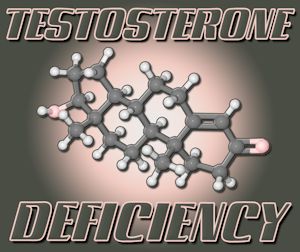Introduction
Andropause, often referred to as male menopause, is a term used to describe the gradual decline in testosterone levels that occurs as men age. This physiological change can manifest in various symptoms and health issues, including those affecting vision and eye health. Over the past two decades, research has increasingly focused on understanding the relationship between andropause and ocular health in American males. This article delves into a comprehensive 20-year analysis of age-related changes in vision and eye health, highlighting the influence of andropause on these critical aspects of men's health.
Understanding Andropause and Its Effects on the Body
Andropause typically begins in men around the age of 40 and is characterized by a slow but steady decline in testosterone production. This hormonal shift can lead to a variety of symptoms, including fatigue, decreased libido, mood changes, and reduced muscle mass. While much attention has been given to the systemic effects of andropause, its impact on vision and eye health has been less explored until recently.
The Link Between Andropause and Vision Changes
Research over the past two decades has revealed a significant association between andropause and changes in vision. One of the most common ocular issues linked to declining testosterone levels is the increased prevalence of dry eye syndrome. Studies have shown that testosterone plays a role in maintaining the health of the meibomian glands, which are responsible for producing the lipid layer of the tear film. As testosterone levels drop, the function of these glands can be compromised, leading to dry, irritated eyes.
In addition to dry eye syndrome, andropause has been associated with an increased risk of developing cataracts. The lens of the eye, which is responsible for focusing light onto the retina, can become clouded as testosterone levels decrease, impairing vision. Furthermore, research indicates that men experiencing andropause may be more susceptible to age-related macular degeneration (AMD), a leading cause of vision loss in older adults.
Longitudinal Studies on Eye Health and Andropause
A 20-year longitudinal study conducted on American males has provided valuable insights into the progression of eye health changes related to andropause. The study followed a cohort of men aged 40 to 60 at the outset and tracked their testosterone levels and ocular health over the two-decade period. The findings were striking: men with the most significant declines in testosterone were more likely to experience severe dry eye symptoms, cataracts, and early signs of AMD.
Interestingly, the study also found that lifestyle factors, such as diet and exercise, could influence the impact of andropause on eye health. Men who maintained a healthy lifestyle, including regular physical activity and a balanced diet rich in omega-3 fatty acids and antioxidants, were less likely to experience severe vision changes despite declining testosterone levels.
Managing Eye Health During Andropause
Given the strong link between andropause and vision changes, it is crucial for American males to prioritize eye health as they age. Regular eye examinations are essential for early detection and management of conditions such as dry eye syndrome, cataracts, and AMD. Additionally, men experiencing symptoms of andropause should consult with their healthcare providers about the potential benefits of testosterone replacement therapy (TRT), which may help mitigate some of the ocular effects of declining testosterone.
Conclusion
The influence of andropause on vision and eye health in American males is a significant concern that warrants attention from both the medical community and the public. As evidenced by a comprehensive 20-year analysis, declining testosterone levels can lead to a range of ocular issues, from dry eyes to cataracts and AMD. By understanding these age-related changes and taking proactive steps to manage eye health, men can maintain their vision and overall well-being as they navigate the challenges of andropause.
Contact Us Today For A Free Consultation

- Understanding Andropause: Male Menopause, Symptoms, and Management Strategies [Last Updated On: March 7th, 2025] [Originally Added On: March 7th, 2025]
- Andropause in American Males: Myths, Realities, and Management Strategies [Last Updated On: March 16th, 2025] [Originally Added On: March 16th, 2025]
- Andropause in American Men: Supplements and Holistic Management Strategies [Last Updated On: March 18th, 2025] [Originally Added On: March 18th, 2025]
- Managing Andropause: Diet, Exercise, Stress, and Hormone Therapy Strategies for American Men [Last Updated On: March 18th, 2025] [Originally Added On: March 18th, 2025]
- Navigating Andropause: Understanding Emotional Changes and Support Strategies for Men [Last Updated On: March 18th, 2025] [Originally Added On: March 18th, 2025]
- Andropause and Depression: Symptoms, Interventions, and Empowerment for American Men [Last Updated On: March 18th, 2025] [Originally Added On: March 18th, 2025]
- Andropause: Embracing Male Menopause as a Growth Opportunity for American Men [Last Updated On: March 18th, 2025] [Originally Added On: March 18th, 2025]
- Andropause Management: Importance of Regular Check-ups for American Men's Health [Last Updated On: March 18th, 2025] [Originally Added On: March 18th, 2025]
- Andropause and Diabetes Risk in American Males: Symptoms, Diagnosis, and Management Strategies [Last Updated On: March 18th, 2025] [Originally Added On: March 18th, 2025]
- Andropause and Prostate Health: Understanding the Link and Managing Symptoms [Last Updated On: March 19th, 2025] [Originally Added On: March 19th, 2025]
- Managing Andropause: Boosting Energy and Vitality in American Men [Last Updated On: March 20th, 2025] [Originally Added On: March 20th, 2025]
- Andropause and Cognitive Health: Strategies for American Men to Maintain Mental Sharpness [Last Updated On: March 20th, 2025] [Originally Added On: March 20th, 2025]
- Andropause: Managing Emotional Well-being in American Men Through Diet, Exercise, and Support [Last Updated On: March 21st, 2025] [Originally Added On: March 21st, 2025]
- Andropause: Navigating Social Impacts and Coping Strategies for American Men [Last Updated On: March 21st, 2025] [Originally Added On: March 21st, 2025]
- Andropause: Building Support Networks for American Men's Health and Well-being [Last Updated On: March 21st, 2025] [Originally Added On: March 21st, 2025]
- Andropause Effects on Skin: Understanding and Managing Changes in Men [Last Updated On: March 21st, 2025] [Originally Added On: March 21st, 2025]
- Andropause and Hair Loss: Understanding Causes and Exploring Treatment Options [Last Updated On: March 21st, 2025] [Originally Added On: March 21st, 2025]
- Andropause: Mental Health Professionals' Role in Managing Psychological Impact [Last Updated On: March 23rd, 2025] [Originally Added On: March 23rd, 2025]
- Managing Andropause: A Guide for American Males to Discuss with Healthcare Providers [Last Updated On: March 23rd, 2025] [Originally Added On: March 23rd, 2025]
- Andropause and Digestive Health: Strategies for American Males [Last Updated On: March 23rd, 2025] [Originally Added On: March 23rd, 2025]
- Hydration's Crucial Role in Managing Andropause Symptoms and Enhancing Well-being [Last Updated On: March 23rd, 2025] [Originally Added On: March 23rd, 2025]
- Andropause in American Males: Managing Muscle Loss and Health [Last Updated On: March 24th, 2025] [Originally Added On: March 24th, 2025]
- Andropause: Understanding Male Menopause and Its Impact on Energy Levels in American Men [Last Updated On: March 24th, 2025] [Originally Added On: March 24th, 2025]
- Andropause: Understanding and Managing Male Menopause Effects on American Men's Lives [Last Updated On: March 24th, 2025] [Originally Added On: March 24th, 2025]
- Andropause in American Men: Enhancing Sleep Quality for Symptom Management [Last Updated On: March 25th, 2025] [Originally Added On: March 25th, 2025]
- Andropause Impact on Kidney Health: Symptoms, Management, and Monitoring for American Men [Last Updated On: March 25th, 2025] [Originally Added On: March 25th, 2025]
- Andropause and Joint Health: Strategies for American Men to Maintain Vitality [Last Updated On: March 25th, 2025] [Originally Added On: March 25th, 2025]
- Andropause and Memory: Strategies for Enhancing Recall in American Males [Last Updated On: March 25th, 2025] [Originally Added On: March 25th, 2025]
- Managing Andropause: Exercise Benefits and Strategies for American Men [Last Updated On: March 25th, 2025] [Originally Added On: March 25th, 2025]
- Managing Andropause: Stress Reduction Techniques for American Men's Health [Last Updated On: March 25th, 2025] [Originally Added On: March 25th, 2025]
- Andropause and Liver Health: Impacts and Management Strategies for American Males [Last Updated On: March 25th, 2025] [Originally Added On: March 25th, 2025]
- Andropause and Cholesterol: Management Strategies for Aging American Males [Last Updated On: March 26th, 2025] [Originally Added On: March 26th, 2025]
- Managing Andropause: Importance of Screenings and Lifestyle Changes for Men's Health [Last Updated On: March 26th, 2025] [Originally Added On: March 26th, 2025]
- Andropause and Thyroid Function: Impacts and Management in American Men [Last Updated On: March 26th, 2025] [Originally Added On: March 26th, 2025]
- Andropause and Vision: Managing Eye Health in Aging American Males [Last Updated On: March 26th, 2025] [Originally Added On: March 26th, 2025]
- Andropause: Understanding and Managing Declining Motivation in American Men [Last Updated On: March 26th, 2025] [Originally Added On: March 26th, 2025]
- Andropause Management: Benefits and Risks of Hormone Replacement Therapy for American Men [Last Updated On: March 26th, 2025] [Originally Added On: March 26th, 2025]
- Managing Andropause: Nutrition and Lifestyle Strategies for American Males [Last Updated On: March 26th, 2025] [Originally Added On: March 26th, 2025]
- Understanding Andropause: Symptoms, Causes, and Management for American Males [Last Updated On: March 26th, 2025] [Originally Added On: March 26th, 2025]
- Andropause: Understanding Male Menopause and the Importance of Community Support [Last Updated On: March 26th, 2025] [Originally Added On: March 26th, 2025]
- Andropause: Managing Symptoms and Balancing Work-Life for American Men [Last Updated On: March 27th, 2025] [Originally Added On: March 27th, 2025]
- Andropause and Self-Esteem: Impacts and Management Strategies for American Men [Last Updated On: March 27th, 2025] [Originally Added On: March 27th, 2025]
- Andropause: Managing Mental Health and Breaking Stigma in American Men [Last Updated On: March 27th, 2025] [Originally Added On: March 27th, 2025]
- Andropause and Emotional Intelligence: Navigating Challenges for American Men [Last Updated On: March 27th, 2025] [Originally Added On: March 27th, 2025]
- Andropause and Respiratory Health: Symptoms, Links, and Management Strategies for American Males [Last Updated On: March 27th, 2025] [Originally Added On: March 27th, 2025]
- Mindfulness: A Holistic Approach to Managing Andropause Symptoms in American Men [Last Updated On: March 27th, 2025] [Originally Added On: March 27th, 2025]
- Andropause: Understanding Male Menopause and Its Impact on American Men's Confidence [Last Updated On: March 27th, 2025] [Originally Added On: March 27th, 2025]
- Andropause and Immune Health: Strategies for American Males to Boost Well-being [Last Updated On: March 27th, 2025] [Originally Added On: March 27th, 2025]
- Andropause: Understanding Symptoms, Family Support, and Healthy Lifestyle Changes for American Men [Last Updated On: March 27th, 2025] [Originally Added On: March 27th, 2025]
- Andropause and Blood Pressure: Monitoring and Management Tips for American Males [Last Updated On: March 28th, 2025] [Originally Added On: March 28th, 2025]
- Andropause and Hearing Loss: Understanding the Link in American Males [Last Updated On: March 29th, 2025] [Originally Added On: March 29th, 2025]
- Andropause and Dental Health: Essential Tips for American Males [Last Updated On: March 30th, 2025] [Originally Added On: March 30th, 2025]
- Hobbies: A Vital Tool for Managing Andropause in American Men [Last Updated On: April 1st, 2025] [Originally Added On: April 1st, 2025]
- Andropause in American Men: Impact on Creativity and Mitigation Strategies [Last Updated On: April 2nd, 2025] [Originally Added On: April 2nd, 2025]
- Andropause and Allergies: Managing Symptoms and Improving Quality of Life in American Males [Last Updated On: April 2nd, 2025] [Originally Added On: April 2nd, 2025]
- Navigating Andropause: Setting Goals for Health, Career, and Relationships [Last Updated On: April 4th, 2025] [Originally Added On: April 4th, 2025]
- Andropause: Managing Time Effectively to Enhance Life Quality in Aging American Men [Last Updated On: April 5th, 2025] [Originally Added On: April 5th, 2025]
- Andropause: Navigating Male Menopause and Its Impact on American Men's Lives [Last Updated On: April 6th, 2025] [Originally Added On: April 6th, 2025]
- Andropause Impact on Foot Health: Prevention and Management for American Males [Last Updated On: April 7th, 2025] [Originally Added On: April 7th, 2025]
- Andropause and Lifelong Learning: Enhancing Life Quality for American Men [Last Updated On: April 9th, 2025] [Originally Added On: April 9th, 2025]
- Technology's Role in Managing Andropause for American Men: Wearables to Digital Therapeutics [Last Updated On: April 9th, 2025] [Originally Added On: April 9th, 2025]
- Andropause Effects on Hand Health: Symptoms, Management for American Males [Last Updated On: April 9th, 2025] [Originally Added On: April 9th, 2025]
- Volunteering: A Holistic Approach to Managing Andropause in American Men [Last Updated On: April 9th, 2025] [Originally Added On: April 9th, 2025]
- Andropause and Skin Sensitivity: Managing Symptoms in American Males [Last Updated On: April 9th, 2025] [Originally Added On: April 9th, 2025]
- Andropause: Understanding Its Impact on American Men's Adventurous Spirit [Last Updated On: April 11th, 2025] [Originally Added On: April 11th, 2025]
- Andropause and Eye Health: Impacts and Management for American Males [Last Updated On: April 12th, 2025] [Originally Added On: April 12th, 2025]
- Andropause Effects on Nail Health: Nutritional and Lifestyle Strategies for American Men [Last Updated On: April 13th, 2025] [Originally Added On: April 13th, 2025]
- Travel as Therapy: Managing Andropause in American Men [Last Updated On: April 13th, 2025] [Originally Added On: April 13th, 2025]
- Andropause and Nasal Health: Understanding the Link and Managing Symptoms in American Men [Last Updated On: April 15th, 2025] [Originally Added On: April 15th, 2025]
- Andropause: Understanding Testosterone Decline and Its Impact on Men's Humor and Well-being [Last Updated On: April 15th, 2025] [Originally Added On: April 15th, 2025]
- Andropause Impact on Throat Health: Strategies for American Men [Last Updated On: April 15th, 2025] [Originally Added On: April 15th, 2025]
- Music Therapy: A Holistic Approach to Managing Andropause Symptoms in American Men [Last Updated On: April 16th, 2025] [Originally Added On: April 16th, 2025]
- Andropause: Financial Planning Strategies for American Men's Health and Retirement [Last Updated On: April 17th, 2025] [Originally Added On: April 17th, 2025]
- Andropause Effects on Oral Health: Understanding Tongue Changes and Management Strategies [Last Updated On: April 17th, 2025] [Originally Added On: April 17th, 2025]
- Art Therapy: A Holistic Approach to Managing Andropause in American Men [Last Updated On: April 17th, 2025] [Originally Added On: April 17th, 2025]
- Andropause: Navigating Testosterone Decline and Identity in American Men [Last Updated On: April 18th, 2025] [Originally Added On: April 18th, 2025]
- Andropause in American Men: Navigating Social Isolation and Building Connections [Last Updated On: April 18th, 2025] [Originally Added On: April 18th, 2025]
- Andropause Effects on Ear Health: Strategies for American Males [Last Updated On: April 19th, 2025] [Originally Added On: April 19th, 2025]
- Andropause and Cognitive Decline: Insights from a 20-Year Study on American Men [Last Updated On: April 23rd, 2025] [Originally Added On: April 23rd, 2025]
- 20-Year Study Reveals Andropause's Impact on Employment, Income, and Quality of Life in American Males [Last Updated On: April 23rd, 2025] [Originally Added On: April 23rd, 2025]
Word Count: 616




















